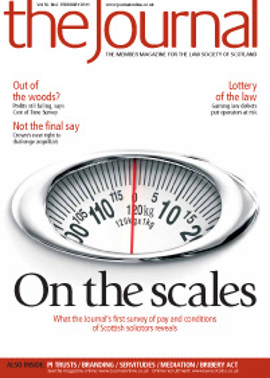Measure for measure

In 2010 Scotland debated the topic of minimum pricing of alcohol. Now it is the turn of England & Wales.
The original Scottish Government proposal had been to legislate for two separate provisions:
- a ban on loss-leading (sales below the sum of cost price + VAT + duty); and
- a minimum price per unit of alcohol (a unit is the quantity of alcohol the average human liver can process in one hour).
After the initial proposal, there appears to have been contact between the Scottish Government and the Office of Fair Trading. It is not difficult to guess that the OFT must have indicated that a ban on loss-leading was, in “pith and substance”, a competition law measure. On that basis such a ban would have fallen within a reserved area and been beyond the Scottish Parliament’s powers.
For whatever reason, the first proposal was abandoned and the second, for a minimum unit price, took centre stage. This was clearly not a competition law measure (although it could affect competition), but it raised some difficult issues of compatibility with EU law on free movement (discussed at Journal, December 2009, 18). The proposal did not achieve the necessary cross-party support, so the EU law issues were never tested in court.
ECJ guidance
Now the UK Government has come up with a new proposal for England & Wales: to prohibit sales below the sum of VAT + duty. The inspiration would appear to come from the judgments of the European Court of Justice in Cases C-197/08, C-198/08 and C-221/08, Commission v (respectively) France, Austria and Ireland at (respectively) identical paras 53, 43 and 55:
“Moreover, if the member states wish to exclude once and for all any possibility for producers or importers to absorb, even temporarily, the impact of taxes on the retail selling price of manufactured tobacco products by selling them at a loss, it is inter alia open to them, while allowing those producers and importers to make effective use of the competitive advantage resulting from any lower cost prices, to prohibit the sale of manufactured tobacco products at a price below the sum of the cost price and all taxes.” The three cases all concerned tobacco products and the correct application of Directive 95/59/EC on taxes other than turnover taxes which affect the consumption of manufactured tobacco. As explained in (identical) paras 36, 28 and 39: “In that regard, article 9(1) of Directive 95/59 provides that manufacturers, or, where appropriate, their representatives or authorised agents in the Community and importers of tobacco from non-member countries are to be free to determine the maximum retail selling price for each of their products, the aim being to ensure effective competition between them (Commission v Greece [Case C-216/98], paragraph 20). That provision seeks to ensure that the determination of the tax base of the proportional excise duty on tobacco products, that is the maximum retail selling price of those products, is subject to the same rules in all the member states. It also aims, as the Advocate General states in point 40 of her opinion, to maintain the freedom of the abovementioned economic operators, by which they may make effective use of the competitive advantage resulting from any lower cost prices.”
Small measure
The court’s observation that a ban on sale below VAT + duty might exclude the possibility of absorption of the impact of taxes may be thought to be no less true of alcohol than of tobacco. On the other hand, by Directive 95/59/EC, duty on tobacco has to be a function of resale price, while, by Directive 92/83/EEC, duty on alcohol must be based on volume. The retail selling price of alcohol products, unlike that of tobacco products, is irrelevant to their tax base. If the UK Government had gone further and proposed a full ban on loss-leading, the industry might have tried to argue that the observations in the tobacco cases undermined the applicability, at least to high-duty goods, of the ECJ judgment in Keck v Mithouard (Cases C-267/91 and C-269/91), where such a ban was found to be entirely compatible with the law on free movement of goods.
It may be that the UK Government preferred to start with a measure so clearly unobjectionable in EU law that a challenge is unlikely even to be threatened. It may have reasoned: if the measure does achieve its purpose, well and good; if not, the objective justification for stricter measures is given more substance. Unlike a full ban on loss-leading, the proposed ban on sales below VAT + duty appears to be a health rather than a competition measure. The question now is whether, given their inability to enact a full ban on loss leading or to agree on minimum pricing, Scottish legislators will seek the extension to Scotland. Is this a case where the best is the enemy of the good?
In this issue
- Mutuality in action
- Tough choices
- Show us the files
- RoS launch business eZine
- Rewards of the job
- Pressure points
- Measure for measure
- Rage against the machine?
- Second bite at the cherry
- Personal injury trusts: benefits and PITfalls
- Countdown for Legal Aid Online
- Training: SYLA will play its part
- Law reform update
- Branding or bragging?
- The learning curve
- Ask Ash
- Mediating retirement
- CICA - a question of timing
- The evidence against
- Fought all the way
- Family friendly
- Stakes too high
- Much ado about plenty
- Limits of authority
- Scottish Solicitors' Discipline Tribunal
- Website review
- Book reviews
- Straight dealing
- Servitudes, developers and flexible rights






